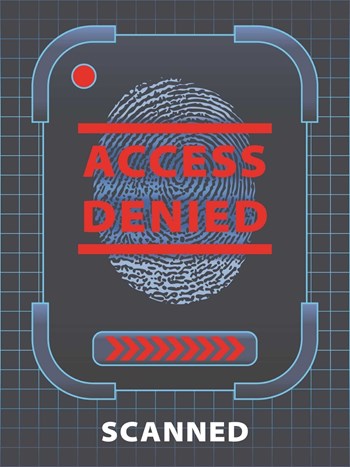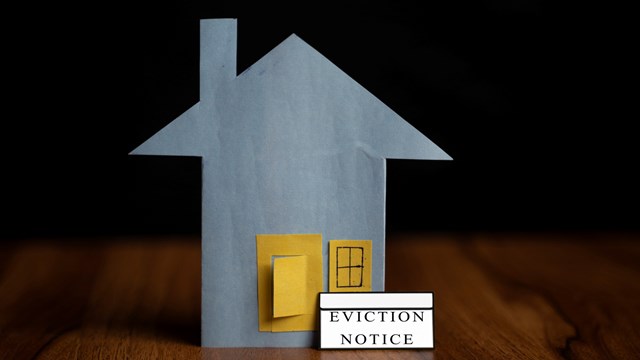
By and large, a board and management company can expect payment from residents for monthly fees to be received on time and in full. These all-important funds keep day-to-day operations moving forward without delay. There are situations, however, that arise which can offset the balance sheet. Circumstances run the gamut but in the end, monies that can’t be collected end up costing a whole lot more than the losses they represent.
The most common excuse given is that the person simply can’t afford to make the payment whether it is true or not. In these cases unit owners will ask for patience, and offer an excuse as to why they are unable to pay, which most recently has been the economy.
It is true that the economy has played a major role in not only late payments but the ability for some people to make their payments at all. This is due, in part, to high jobless rates.
Sometimes though it isn't the economy or a medical emergency that spurs a unit owner into not paying their fees.
According to Pamela Jonah, an attorney with Goodman, Shapiro & Lombardi, LLC, based in Dedham, Massachusetts, every so often a unit owner will withhold the payment of common fee in response to an alleged grievance against the board.
“A common example is an allegation that the board has not responded to the unit owner’s complaint regarding the need for repair of some common areas,” says Jonah. “But there is no defense to the non-payment of common fees.”
The way in which a board determines how to handle collecting monies that are past due is always different as respective bylaws dictate the course of action. In most situations there is a grace period between five and 15 days after the payment is due which is usually the first of the month. “If it is deemed a temporary issue, then it is simply a matter of collecting the money,” says accountant Michael A. Esposito, CPA, who works in New York City. “If it’s a chronic use, you have to then factor the losses into your budgeting.”
To this end, most boards will assume that there will be a percentage, albeit small, of deadbeats who will not make payments which impacts the rest of the community. This is considered an unfair charge to residents that faithfully pay their fees and common charges.
“If, for example, you were trying to collect one million dollars, you have to figure that you will not collect that amount and will collect something less,” says Esposito. “Theoretically, you’re still going to have to come up with that million dollars so common charges for all residents have to be raised to say $1.1 million dollars. This is the downside of living cooperatively.”
Mediation Before Litigation
While most boards have an attorney on retainer, they depend on their management company to keep them apprised of any delinquencies. This communication chain of command can add more time to the situation. For example, if a resident misses a payment, the management company will normally not send a notice to that resident until the grace period is over, and in some cases will wait weeks longer. The management company will inform the board at the next monthly meeting. So before any action can be considered, and providing the resident didn’t make good on the first missed payment, the delinquent resident will likely have missed two payments before any serious action is taken.
“Common problems are people losing their jobs or claiming bankruptcy and the management company are the ones that have to be aware of the reason that payments are not being made,” says Albert M. Kushnirov, CPA, who is with an accounting firm based in New York City.
“We are seeing more of this in the last couple of years. And when it comes with how a board will deal with the situation, everyone is different. It is like every board is a different country with different rules and customs.”
Depending on the board, the rules for collection of delinquent fees are usually covered in the bylaws or “house rules,” the propriety lease, the offering plan, or management policy. Boards generally prefer that if a written notice doesn’t spur activity to have the management company call the resident directly.
Some industry professionals point out that typically, this type of follow-up will continue for a month or two. Eventually, however, if these steps don’t yield a response, an attorney should be contacted to draft a similar letter with the threat of legal action citing relevant provisions of obligations in the controlling documents.
“We always counsel boards to be vigilant in reviewing and scrutinizing unit owner account arrearages,” adds Jonah, who frequently handles litigation on behalf of condominium associations, “Boards should also place accounts maintaining arrearages with our office for lien enforcement no later than 90 days after the unit owner goes into arrears.”
While banks and lending institutions penalize a person for being late on a car loan payment or credit card payment with a late charge, boards often do not. Their main goal is trying to recoup monies lost and up and until legal counsel is brought into the picture, they look to remedy the situation with as little cost as possible.
If a resident is not excessively delinquent, often boards will wait until the arrearage gets to be a higher amount to warrant the spending of legal fees to recover the late fees. Boards do not have a lot of extra money and they do not want to spend money on an attorney unless they have to.
Suspending Privileges
Charging late fees, filing liens and starting foreclosures are the most common avenues and methods to persuade members to pay; however, many associations also have the ability to suspend privileges to any member in arrears. The theory being that the assessments pay for those privileges and if a member is not contributing to the cost of those privileges and/or amenities, then they can be deprived of the benefit of using them.
"The answer will depend entirely on what your state's laws,” says attorney Adam Cohen, a member of the law firm of Pullman & Comley, LLC, located in Bridgeport, Connecticut, “and your association's declaration and bylaws, say on these subjects. Denying non-essential privileges such as pool access may be easier but might at least require that the board hold a hearing and invite the owner to be heard first.”
Jonah agrees, “In Massachusetts, there is no case directly on point with regard to the right of an association to withhold privileges and access to common areas and amenities due to the non-payment of common fees. Since such a withholding could be deemed a restriction on use, it would seem that in order to deny access, say to the pool for the non-payment of common fees, would require an amendment to the master deed or bylaws.”
A board that is experiencing a shortfall of funds maybe be forced to conduct a special assessment to make ends meet, especially in this economic climate, explains Kushnirov. “During debt collection proceedings, a few times we have seen condominiums activate a special assessment to make up for the monies lost.”
Ultimately, the old adage of a few bad apples upsetting the apple cart is realized. Residents are not without recourse in that they can request information from the board as to who is not making payments. They are not allowed to harass the delinquent party due to governing laws and other legislation; they are entitled to know why a special assessment was executed and why their monthly dues increased.
Fair Collections
If legal action is taken, it can take months if not over a year for a case to be settled. The nation’s consumer protection agency, the Federal Trade Commission (FTC), is the entity that enforces the Fair Debt Collection Practices Act (FDCPA). This prohibits debt collectors from using abusive, unfair, or deceptive practices to collect from a delinquent party. Under the FDCPA, a debt collector is defined as a person who regularly collects debts owed to others and includes collection agencies, lawyers who collect debts on a regular basis, and companies that buy delinquent debts and then try to collect them, notes the FTC.
In many cases, the location of the building and the demographics that comprise the residents make a difference on the frequency of payment arrears or the juxtaposed value in the event collections occur.
Since condo and co-op owners have a different ownership structure, in many cases, Kushnirov explains that the former will continue to pay their mortgage payments but lapse on their monthly fees. “To avoid getting in trouble with the bank, condo owners will continue to pay them but not their monthly fees. This happens on a regular basis.”
Essentially, a co-op owner is just a lessee with ownership of shares in a corporation. The board can initiate an eviction proceeding because it is a landlord/tenant relationship. The process can take anywhere from three to six months.
However, the attorneys say, with condominium owners, it becomes an issue of foreclosure on that unit by the board. This proceeding is far more costly and time-consuming with a six- to 18-month window depending on the site, the judge and the parties involved.
W.B. King is a freelance writer and a frequent contributor to New England Condominium. Associate Editor Liam P. Cusack contributed to this article.






Leave a Comment